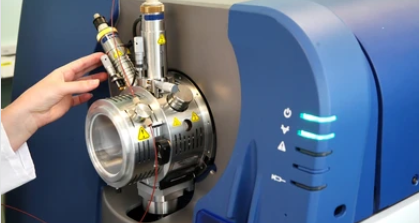Venom Peptide Identification
Biologically active polypeptides are biologically active substances involved in various cell functions in organisms, including cytokines, growth hormones, and disease-specific degradation fragments of certain proteins in body fluids.
They are related to the regulation of organisms, including hormone regulation, neurotransmitter regulation, cell growth and proliferation regulation, and immune regulation. The study of the structure and physiological functions of peptides is of great significance in life sciences. Peptidomics is a discipline that studies the peptides from many aspects such as structure and function. The application of mass spectrometry to the analysis of peptidomics can realize the qualitative and quantitative determination of peptides in samples.
The purpose of peptomic analysis is not only to identify and verify all endogenous peptides in the biological sample under study, but also to compare the expression levels of target peptides during specific biochemical processes. With the help of mass spectrometry technology, unbiased analysis of target peptides can be achieved.
Peptide Identification Process
Peptomics and proteomics have many similarities in research strategies, but there are still some important differences between the two. In order to realize the identification of natural peptides, such as some post-translational modification analysis, specific digestive enzymes are usually not used in peptidomics research, so the primary mass spectrometry (MS) and secondary mass spectrometry (MS/MS) are used to identify peptides. With the development of MS/MS sequencing technology, MS-based peptide identification has gradually replaced the conventional Edman degradation method. Many studies have used mass spectrometry to identify peptides in various extracts, such as bioactive peptides in venom. After removing most of the proteins in the venom sample, LC-MS can perform peptide identification with high accuracy and reproducibility.
In order to save your time and energy, Creative Proteomics provides a one-stop peptide identification service. The conventional methods include:
- Extract peptides from samples.
- Separation of peptide samples by chromatography.
- Primary mass spectrometry detection. Use a mass spectrometer to detect the mass-to-charge ratio of the ionized polypeptide.
- Two-stage mass spectrometry detection. The secondary mass spectrometry is similar to the primary mass spectrometry. The secondary mass spectrometry detects broken peptide ions, while the primary mass spectrometry detects intact peptide ions.
- Bioinformatics analysis.
Creative Proteomics has advanced peptide group sample pre-processing technology and mass spectrometry technology, which can provide you with high-resolution, high-sensitivity, high-throughput, high-precision detection results and data analysis.
Please contact us for more information.
For research use only. Not intended for any clinical use.


